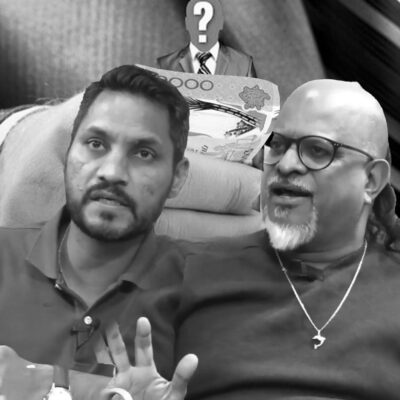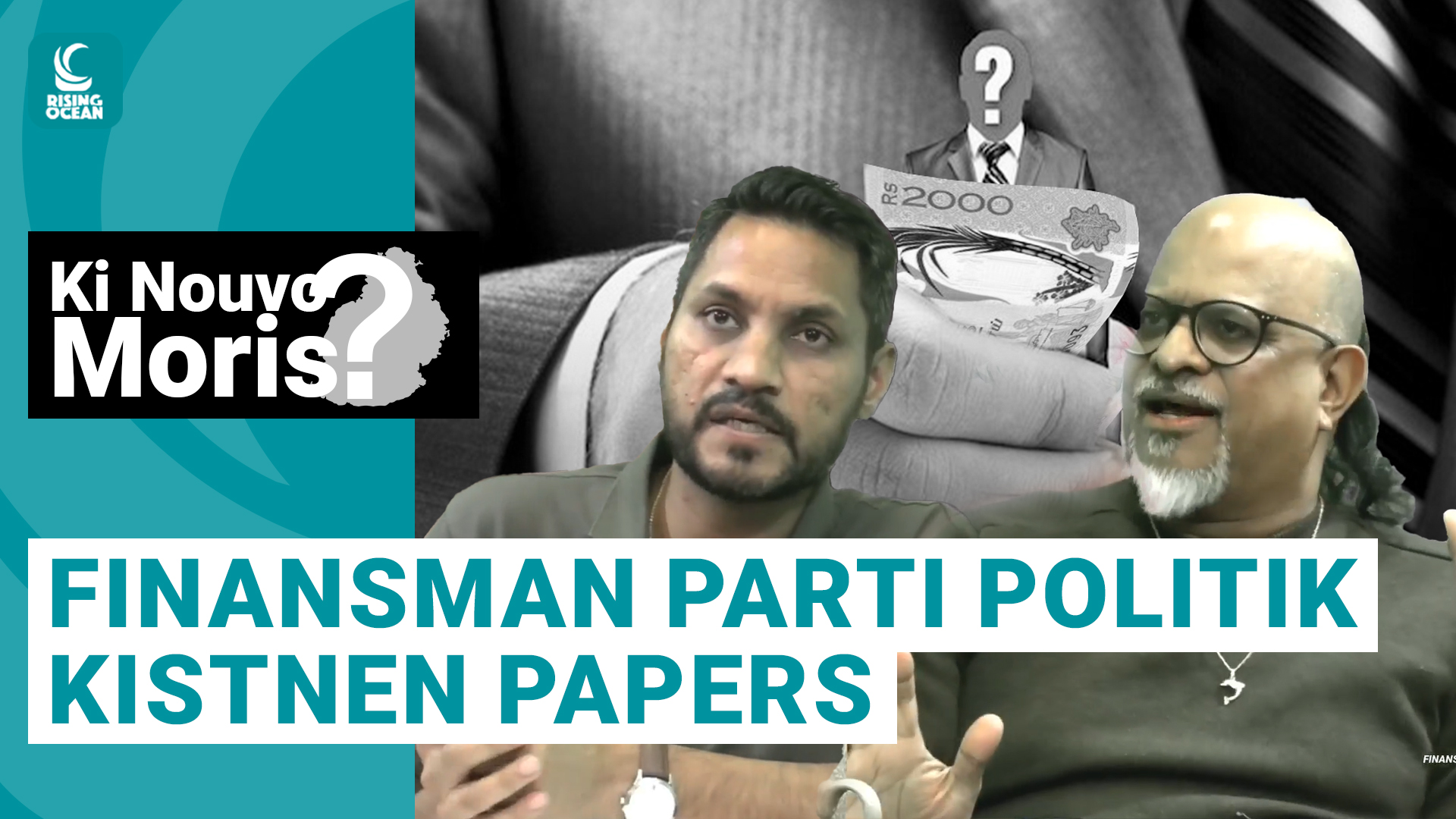In the run-up to the general elections, the Ki Nouvo Moris plateau received Ashok Subron, a member of the national committee of Rezistans ek Alternativ (ReA), to address the issue of the financing of political parties as well as the financing bill proposed to the assembly. Following the PNQ on Tuesday, April 14, the guest will also proceed to an evaluation of the Kistnen affair and especially the Kistnen papers. Ashvin Gudday was the moderator.
What is your assessment of the slowness of the judiciary in ruling on the Kistnen case?
Four years later, the Kistnen case is still unresolved. Even though the report showed that there were troubling facts, a slowness at the judicial level is to be deplored. Ashok Subron, for his part, points out that the slowness of the ruling in this case is as serious as those who disguised this murder as a suicide. It seems that it was easier to make people believe that it was a suicide than to elucidate this murder. According to Ashok Subron, there are several reasons why the Kistnen case should be discussed.
“The member of the assembly who responded to the PNQ had used a very icy tone, making it seem that he did not know the deceased Kistnen, as if this person were a complete stranger to him. Apart, Kistnen was one of the pillars of his electoral campaign in constituency number 8.”
The lack of compassion of this MP raises a series of questions, says Ashok Subron. Another thing that our guest deplores concerning the PNQ, is the Prime Minister’s remarks on the Kistnen papers. He points out that it is extremely serious that the PM referred to the Kistnen papers as ‘Karne laboutik’.
As a reminder, the Kistnen papers contain all the expenses incurred by the MSM part in the No. 8 constituency. It should be noted that the DPP handed over this document to the Moka Court.
Kistnen papers, the follow-up.
Ashok Subron brings out that there was no real follow-up for the Kistnen papers. By the end of 2020, ReA had in its possession a copy of the Kistnen papers. « As a responsible political party, we did our duty, and we submitted a letter to the electoral commission to tell them that there was disturbing information circulating and that if there was an official investigation, we would agree to hand over everything we have in our possession. »
Following this letter, the Electoral Commission asked the Commissioner of Police to do what was necessary regarding this case. Our guest confides that there has indeed been a beginning to the investigation because he and another comrade had been summoned by the police to give their statement.
“We must dwell on what is crucial. There is a violation of the electoral law, and those who committed this offence must answer for it because the law provides that if a candidate exceeds the 150,000 rupees, it will be considered an illegal practice.”
The Political Financing Bill
Since independence, there have been two elements that have been corrupting the electoral process: communalism and money. Ashok Subron claims that communalism is the roadblock that certain political groups set up during elections.
“This is one of the greatest dangers for the next general election, and ReA will ensure that this roadblock is not set up and, above all, that it does not turn into violence.”
For several years, money has started to occupy an unprecedented place in elections in Mauritius. Nowadays, there is a lot of money circulating in the country and this has corrupted our election system.
“The Mauritian population must understand that the Political financing bill that has been introduced in parliament will corrupt democracy because it provides for the legalization of the rotting of elections by money.”
Indeed, the bill that is currently being read provides that private entities will be able to permanently finance a member of the national assembly after he is elected, an election campaign or a member of a political group.
In conclusion, the Political Financing Bill targets electoral corruption by corporates and private entities. Ashok Subron reminds us that the history of the country should not be placed in a drawer. The right to vote was not acquired easily, and it is due to a great deal of sacrifice that today we have universal suffrage. Democracy has suffered several blows since independence; however, bills such as the Political Financing Bill are an outrage to the history of Mauritius.
Watch the full debate here.


